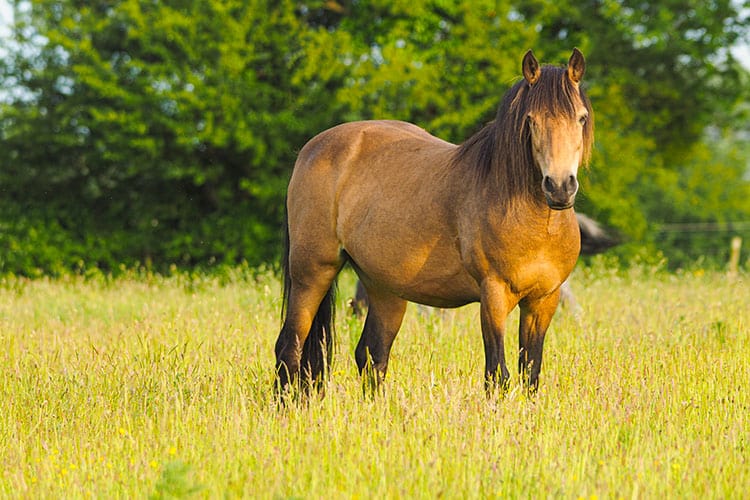
How To Prevent Winter Nutrient Deficiencies In Horses
Horses that are used to being on pasture during the spring, summer, and fall might experience nutrient deficiencies during the winter.

Horses that are used to being on pasture during the spring, summer, and fall might experience nutrient deficiencies during the winter.

An equine nutritionist explains why NSCs, ESCs, and WSCs are important factors to consider when choosing hay for your EMS horse.

Dr. Patty Graham-Thiers describes the safest ways to help a horse lose weight without overrestricting his forage intake and increasing his risk of gastric ulcers.

Dr. Kelly Vineyard explains how to estimate the amount of grass your horse consumes when turned out on pasture and calculate his total daily forage intake.

When your older horse’s pearly whites are past their prime, keep an eye out for signs of specific problems.

Read about the do’s and don’ts of feeding horses that have 4 common health conditions, including gastric ulcers, metabolic disorders, and more.

Here are some tips for promoting nonworking horses’ optimal health (and preventing potential problems) with nutrition.

Is your horse’s hay meeting his nutritional, health, and welfare needs? Learn how to make informed forage decisions.

Find out what causes watery feces in horses and whether you should be concerned.

When the temperatures drop, make sure your horses always have access to water and are drinking enough.

Stacking and tarping your hay correctly can ensure quality forage for your horse all winter.

Horses tend to drink less as the temperature of their water drops. However, when given the choice between cold and warm water, horses consume the former.

Proper storage techniques help prevent spoilage, preserve nutrients, avoid mold, and protect against pests, helping your horse’s health and maximizing your investment.

Learn how to calculate the amount of forage your horse or pony needs to achieve a healthy weight and what types of hay might be best for weight loss.

These horsekeeping tips can help keep your farm running smoothly and horses healthy when winter weather arrives. Read more in the Winter 2024 issue of The Horse.

One equine nutritionist weighs in on which type of hay best helps horses stay warm during cold nights.
Stay on top of the most recent Horse Health news with
"*" indicates required fields